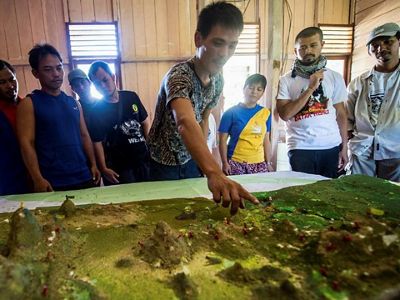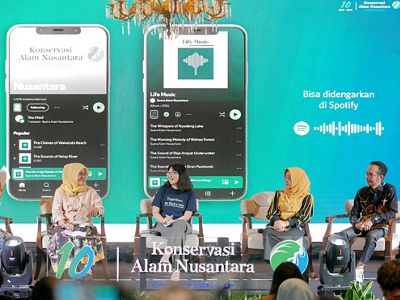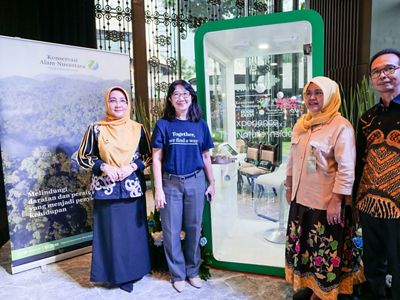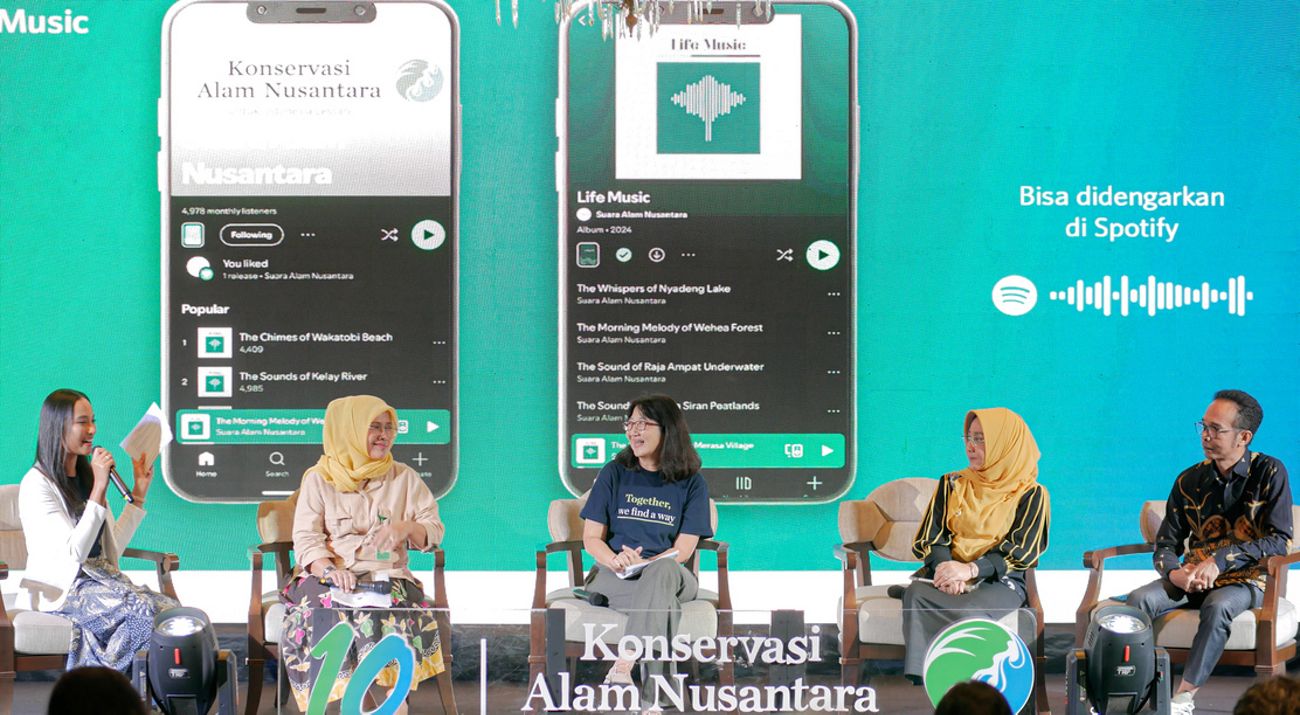YKAN Calls for 'Together, We Find a Way' on Its 10th Anniversary to Strengthen Conservation Collaboration
Media Contacts
-
Meita Annissa
Public Communications Manager YKAN
Email: meita.annissa@ykan.or.id
Over the past decade, the Nusantara Nature Conservation Foundation (YKAN), in close cooperation with partners, has been a catalyst for change in protecting nature and preserving life across several regions in Indonesia. Celebrating a decade of dedication to conservation, YKAN marked its 10th anniversary with the theme ‘Together, We Find a Way.’
Since its establishment in 2014, YKAN has been committed to significantly protecting nature and biodiversity and improving community welfare. These achievements stem from YKAN's collaboration with the Indonesian government, research institutions, non governmental organizations, communities, and the private sector. YKAN actively implements science-based and non-confrontational conservation programs across 14 provinces, covering terrestrial and marine ecosystems essential to life.

One notable collaboration has been with the Ministry of Forestry of the Republic of Indonesia. "The challenges of preserving biodiversity are vast, diverse, and complex. The government cannot tackle these challenges alone. We need active participation from the private sector, academia, and the community, including non-governmental organizations like YKAN," said Ammy Nurwati, Secretary of the Directorate General for Natural Resources and Ecosystem Conservation (KSDAE) of the Ministry of Forestry, during a media briefing in Jakarta (12/4).
According to Ammy, biodiversity conservation is a key government priority, as evidenced by the ratification of international agreements such as the Convention on Biodiversity (CBD) and the World Heritage Convention (WHC). However, challenges like pollution, encroachment, illegal hunting, and activities such as logging, fishing, and mining pose serious threats. Additionally, 6,000 villages near conservation areas present unique challenges, especially concerning community welfare.
"Marine debris affects coastal ecosystems, including mangroves, seagrasses, and coral reefs. Biodiversity loss due to encroachment, hunting, and other illegal activities continues to rise. Community involvement is crucial to addressing these issues. If the community sees economic benefits, they are more likely to protect these areas," Ammy emphasized.
YKAN has empowered local and indigenous communities since 2019. Together with the Berau Coal Foundation and Gadjah Mada University (UGM), YKAN supports the SIGAP SEJAHTERA Program. This program adopts the SIGAP (Inspirational Action for Change) approach, developed by YKAN, to empower communities by leveraging village potential.
As part of the SIGAP Sejahtera program, 100 villages across 12 districts in Berau have been provided with community facilitators known as 'SIGAP Sejahtera Warriors.' These facilitators strengthen village governance, sustainably manage forests and natural resources, secure land-use rights, and develop eco-friendly economies. One positive outcome is the increase in the number of self-sufficient villages, from two at the start of the program to 19 today, as measured by the Village Development Index (IDM).
"Berau is blessed with extraordinary natural wealth. We aim to make this region a model of sustainable conservation practices. With the active participation of communities and partners like YKAN, we believe we can achieve a green development vision that benefits Berau and contributes to national conservation efforts," said Berau Regent Sri Juniarsih.
Berau is also the site for implementing sustainable shrimp farming using the Shrimp Carbon Aquaculture (SECURE) approach. This method improves traditional shrimp farming practices while restoring damaged mangroves. Herdin, a shrimp farmer from Pegat Batumbuk Village, shared that farmers in his village traditionally relied on mangrove land for aquaculture.
Over time, unsustainable traditional practices have converted more mangrove areas into ponds. "YKAN introduced us to eco-friendly shrimp farming methods while restoring mangroves. We've realized mangroves are crucial for wildlife, coastal communities, and shrimp farming. If mangroves around the ponds are damaged, yields will decline. Although harvests are not as abundant as before, they gradually increase. We are also getting additional harvests, such as crabs and milkfish," said Herdin.

YKAN Executive Director Herlina Hartanto expressed gratitude to the central and local governments, community partners, and other stakeholders. According to Herlina, these achievements are a cause for celebration and a call for stronger collaboration to face future challenges.
"We are grateful for the close partnerships that have yielded shared successes in pursuing conservation over the past 10 years. These collaborations have allowed us to innovate and make impactful breakthroughs. However, future challenges are increasingly complex. We invite all stakeholders to work even harder to address the dual crises of climate change and biodiversity loss, Together, We Find a Way. Stronger and broader collaboration at all levels is crucial to preserving nature and improving community welfare for a sustainable Indonesia," Herlina stated.
Life Music: Suara Alam Nusantara Album
To mark its 10th anniversary, YKAN launched a gift to nature and society: the Life Music: Suara Alam Nusantara album. The album features 10 nature-inspired tracks, including bird songs, ocean waves, and forest wildlife sounds, recorded from YKAN project sites like Raja Ampat (West Papua), Wakatobi (Southeast Sulawesi), and the Wehea Forest (East Kalimantan).

YKAN hopes to inspire more people to protect and preserve nature and its inhabitants through this work. Listening to the album on Spotify allows anyone to contribute 'royalties' to nature itself, the ultimate musician.
"Every form of collaboration inspires us to continue our conservation mission. With more stakeholders involved, a sustainable Indonesia is no longer just a dream but can become a reality," Herlina concluded.
Yayasan Konservasi Alam Nusantara (YKAN) is a scientific-based non-profit organization that has been present in Indonesia since 2014. With the mission of protecting lands and waters as life support systems, we provide innovative solutions to realize the harmony of nature and humans through effective natural resource management, prioritizing a non-confrontational approach, and building a network of partnerships with all stakeholders for a sustainable Indonesia. For more information, visit ykan.or.id.


